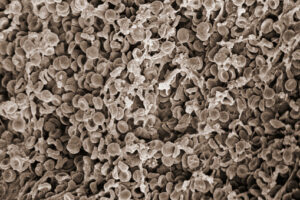Platelet transfusion refractoriness (PTR) is usually caused by non-immune platelet consumption but can also be caused by immune-mediated platelet destruction. Both donor and recipient product/factors can contribute to immune-mediated PTR, and alloimmunization against class I human leukocyte antigens (HLA) are often involved. The three main approaches to identifying HLA compatible platelets include using standard serological assays which requires testing several donors’ platelets, using HLA donor registries to find HLA matched platelets, or using antibody specific prediction (ASP) to match predicted HLA epitopes. ASP-matched platelets are cheaper than HLA matched platelets and require a smaller donor pool. However, there is currently little data on using ASP-matched platelets and PTR. To evaluate one center’s ASP strategy in France, researchers retrospectively analyzed the effectiveness of 556 transfusions given to 16 patients who had screened positive for HLA class I antibodies using a threshold of 3000 MFI (Luminix technology). Corrected count increments were compared at 1 hour and 24 hours post-transfusion for both HLA-matched and non-HLA-matched platelets, depending on availability. The median CCI 1 hour post transfusion was 9.24 compared to 4.23 for HLA-matched and non-matched platelets (p=0.01), respectively. No differences in CCI were observed for HLA matched vs non-matched platelets 24 hours post transfusion, most likely due to non-immune causes of platelet destruction. These data suggest that ASP may be an appropriate method to manage immune PTR.
Reference:

